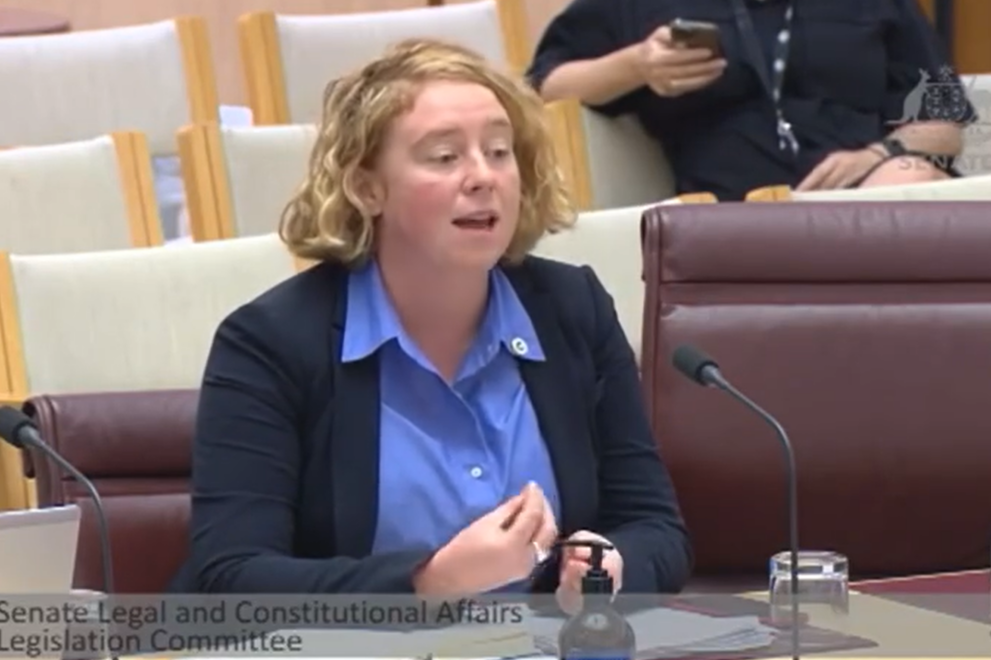Your cart is empty.


Your cart is empty.
Everyone deserves safe access to healthcare.
The Working Women’s Centre opposes Sarah Game MLC’s abortion bill, which will be brought to a vote in the Legislative Council next Wednesday 12 November. If passed, the bill would restrict access to abortion healthcare in South Australia.
The Working Women’s Centre supports people who need abortion care, alongside over 80% of South Australians who support the right to choose abortion.
In South Australia, abortion was decriminalised in 2022, after the passing of legislation in 2021. The bill introduced by Game is an attempt to revive misinformation and debate about abortion. Resurrecting this debate is stigmatising and harmful to people who need abortion care later in pregnancy.
We call on Members of the Legislative Assembly and all political parties to reject this bill.
South Australia Abortion Action Coalition have been dedicated advocates for our health care and equitable access to quality abortion care in South Australia for all people. Check out their website for factual information and ways you can support the ongoing efforts to protect bodily autonomy and the right to choose.
Small but vocal conservative organisations are behind this bill, and are using it as a tactic to spread misinformation, stigma and hate. The vast majority of people in Australia are supportive of access to abortion care.
As a feminist organisation, the Working Women’s Centre opposes the bill introduced by Sarah Game MLC. We support the right of everyone to healthcare access and bodily autonomy.
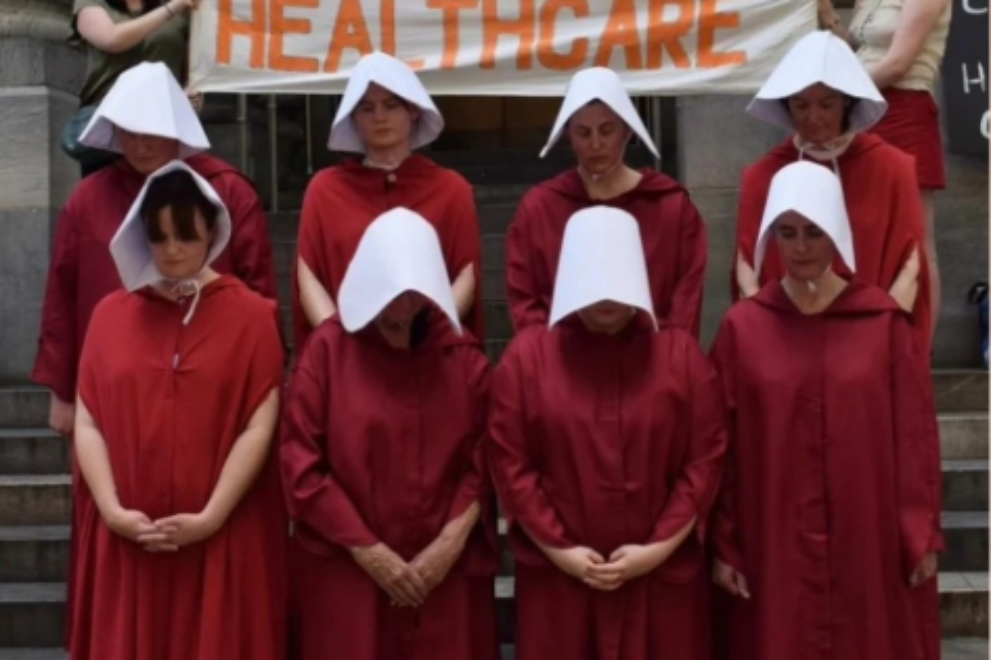
Next week, on Tuesday August 19, it is national Equal Pay Day 2025.
The day symbolically marks the end of the 50 additional days into the new financial year that women in Australia need to work to earn the same pay, on average, as men.
This discrepancy is known as the Gender Pay Gap – the difference in average earnings between men and women across the whole workforce, not just people in the same job.
It seems simple enough – and very unfair. However, what it really means, why it’s about much more than numbers, why it is even still a thing in 2025, and what we can do to change it, can be confusing.
A screen reading of this article takes around 5 minutes or you can listen to it here:
You may have heard different numbers and that is because there are a variety of ways to measure the Gender Pay Gap. Whatever way we look at the statistics, every set of data shows a significant gap that disadvantages women.
Just last week on 7 August, a new study released by the Australian Government’s Jobs and Skills Australia agency, New Perspectives on Old Problems: Gendered jobs, work and pay, shows that the accumulated 10-year occupational Gender Pay Gap is 30.7%.
This report provides detailed, new, intersectional data about gendered segregation and pay gaps including those experienced by First Nations and Culturally and Linguistically Diverse migrant workers. We recommend anyone wanting to find out the latest expert thinking to take a look at this groundbreaking research.
Using mandatory Gender Equality Reports from around 7500 of Australia’s largest private and non-profit employers, the Workplace Gender Equality Agency (WGEA) calculates the current full-time-equivalent Gender Pay Gap in Australia as 21.8%.
That means that for every $1 that men earn, women earn 78 cents. This adds up to an average difference of over $28,000 between men and women’s annual pay.
The Australian Bureau of Statistics (ABS) reports a national pay gap of 11.9% for full time workers. However, when considering all employees, including part-time and casual workers, the ABS Gender Pay Gap widens significantly to 30.6%.
If we zoom out and look at this as a collective issue, an aggregate of the Gender Pay Gap shows a difference in the gender share of the national wage pool of around $200 billion annually.
An income flow of this size should be seen for what it is: a major structural feature of the Australian economy with a significant effect on wealth distribution and equality.
Of course, it’s true that in Australia, equal pay for equal work is a legal requirement under legislation such as the Sex Discrimination Act 1984, the Fair Work Act 2009, and the Workplace Gender Equality Act 2012.
However, the Gender Pay Gap is driven by rusted-on, systemic power imbalances and stereotypes in workplaces, domestic life, community institutions and public life.
There are specific factors which contribute to the Gender Pay Gap:
Amendments to various Acts since the Australian Human Rights Commission’s landmark Respect@Work Report have strengthened the responsibilities of employers to actively make workplaces fairer and safer.
As the Albanese Government has been implementing the 55 recommendations of the Respect@Work Report, there have been significant positive changes. Yet, there is still much further work to do, to address the causes of the Gender Pay Gap and the rise in sexual harassment and discrimination in Australian workplaces.
Tackling the Gender Pay Gap and other inequalities requires making changes across workplaces and communities as a collective whole.
We need to dismantle out-of-date ideas about work and care and take concerted action to reduce occupational segregation. We also need concrete policies that can help make positive change by, for instance, reducing casualisation, shortening the full-time working week, allowing employee-led flexibility, improving universal access to social services, and creating well-paid, fair and meaningful jobs for all.
This requires galvanising a sense of purpose to achieve equality and stronger rights across civil society. Gender equality and eliminating discrimination should be taken seriously with the teeth of legislated responsibilities, regulation and accountability.
For more than a century, Australian feminists and trade unionists have campaigned for equal pay. Take a look at the article and film, A Short History of Unions Taking Action for Equal Pay! produced by the Australian Council of Trade Unions (ACTU) for an inspiring glimpse into how much we have won and why we must keep fighting for equality in our workplaces.
Australian unions welcomed an important equal pay decision handed down by the Fair Work Commission in April this year which recognised historic undervaluing of pay based on gender in a range of sectors.
The Australian Services Union’s current Skilled, Respected, Equal campaign is a great example of ways we can advance genuine equal pay in Australia by acknowledging the causes of the Gender Pay Gap and organising ourselves to do something about it.
The Australian Services Union (ASU) covers workers often devalued and underpaid in the social service and care sectors – workforces that primarily employ women because of the occupational segregation we have discussed.
The ASU achieved a milestone equal pay win in 2012 resulting in real wage increase of 23% – 45% over eight years. Now, unions are concerned that the Fair Work Commission’s proposed changes to the Social and Community Services Award will have unintended consequences that could disadvantage some workers and set back equal pay.
The Working Women’s Centre SA supports the ASU’s campaign to make sure that the expertise, lived experience and complexity involved in social service jobs is valued and fairly paid.
In South Australia, the ABS data shows our Gender Pay Gap as at least 9.8% for full time workers. While better than the national average, South Australia’s gap has been increasing. There are complex reasons for this, including the gender segregation of the industries in which South Australia is growing employment such as arms manufacturing, construction and health.
The South Australian Government undertook a Gender Pay Gap Taskforce which reported in November 2024.
The recommendations cover supporting small-to-medium employers to address their own workplace gender pay gaps; establishing an independent research centre to help address economic inequality; and taking targeted action to reduce the Gender Pay Gap in the public sector. Enacting these recommendations, in full, is a great start to closing our gender pay gap.
The Gender Pay Gap and women’s lifetime caring responsibilities means that women face a significant superannuation gap when they reach retirement age, with their median superannuation balance about 25% lower than men.
As the WWC SA and others have noted in submissions to the SA Government, there is an important issue for future review in the regulations of an otherwise very welcome reform to create Portable Long Service Leave in South Australia’s community and disability sector.
The exclusion of superannuation from this scheme, in a sector in which women make up nearly 75% of the workforce, will have the greatest impact on women who already face significant superannuation disadvantage.
Poverty in retirement is a major, often ignored, issue facing older women workers. Public policy needs to address this rather than contributing to widening the gender superannuation gap and women’s disadvantage.
The next six months is an opportunity for progressive change and action in South Australia.
Promoting equality, rights and fairness for women at work is intricately linked to addressing women’s economic security and our freedom to live without the threat of gendered violence.
South Australia’s Royal Commission into Domestic, Family and Sexual Violence will be released in the coming week. We await the Royal Commission’s important recommendations and the South Australian Government’s response. Animating our positive duty to challenge violence in homes, communities, and workplaces will be important to any actions.
The SA Government has committed to new Gender Equality legislation, and this is an ideal opportunity to strengthen our State’s strong record on equality with new purposeful law reform.
We offer workplace training, advocacy and legal services for women and marginalised workers – find out more here and signup for our e-news here.
Here are the resources and organisations we refer to in this article, in order of their appearance.
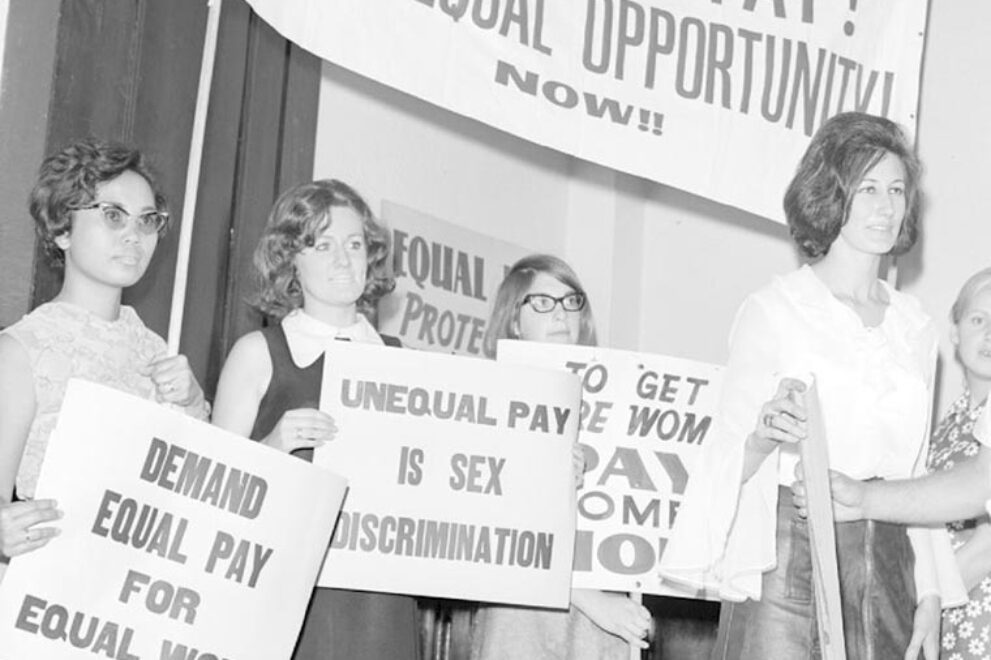
This year, NAIDOC Week celebrates a big milestone — 50 years of honouring Aboriginal and Torres Strait Islander people, culture, and history.
NAIDOC began as a movement for justice and recognition, led by Aboriginal communities who imagined a fairer future. It has grown into a powerful national celebration of pride, showing the strength, leadership, and resilience of First Nations people across the country.
📍 Check out the events happening across Tarntanya / Adelaide and visit naidoc.org.au to learn more.
NAIDOC March and Family Festival (Free)
📅 Friday 11 July 2025
🕚 11am – 4pm
📍 Tarntanyangga (Victoria Square)
Church Service and Light Dinner (Free)
📅 Sunday 6 July 2025
🕕 6pm – 8pm
📍 Pilgrim Uniting Church, 12 Flinders Street, Adelaide
NAIDOC SA Awards
📅 Monday 7 July 2025
🕛 12pm – 2pm
📍 Adelaide Town Hall, 128 King William Street, Adelaide
NAIDOC SA Gala Ball
📅 Saturday 12 July 2025
🕡 6:30pm – 11:30pm
📍 Adelaide Convention Centre, North Terrace, Adelaide
👉 For the full event schedule and updates, visit naidocsa.com.au
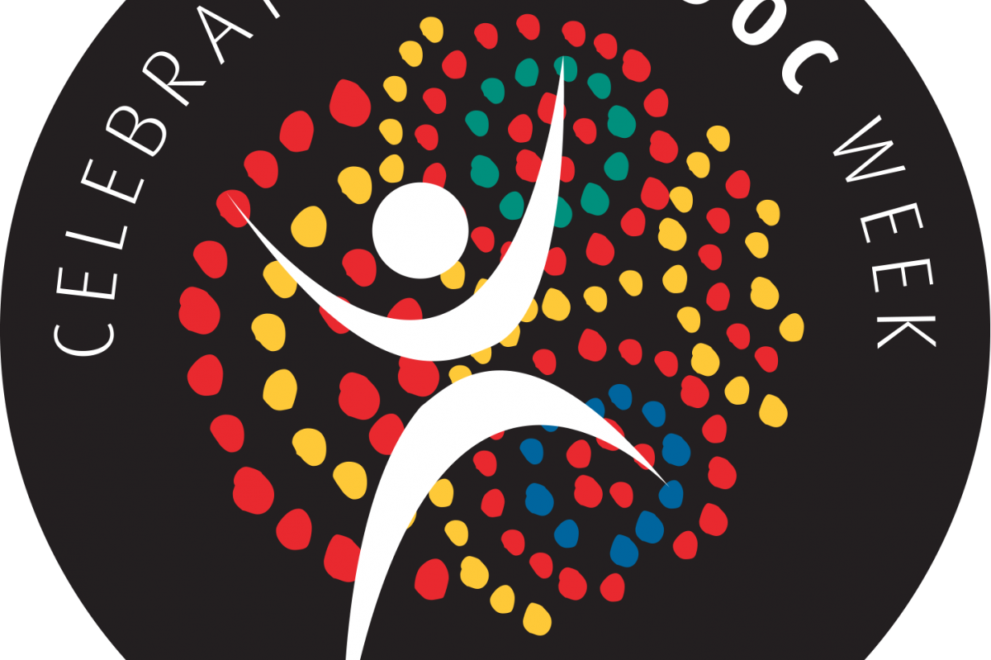

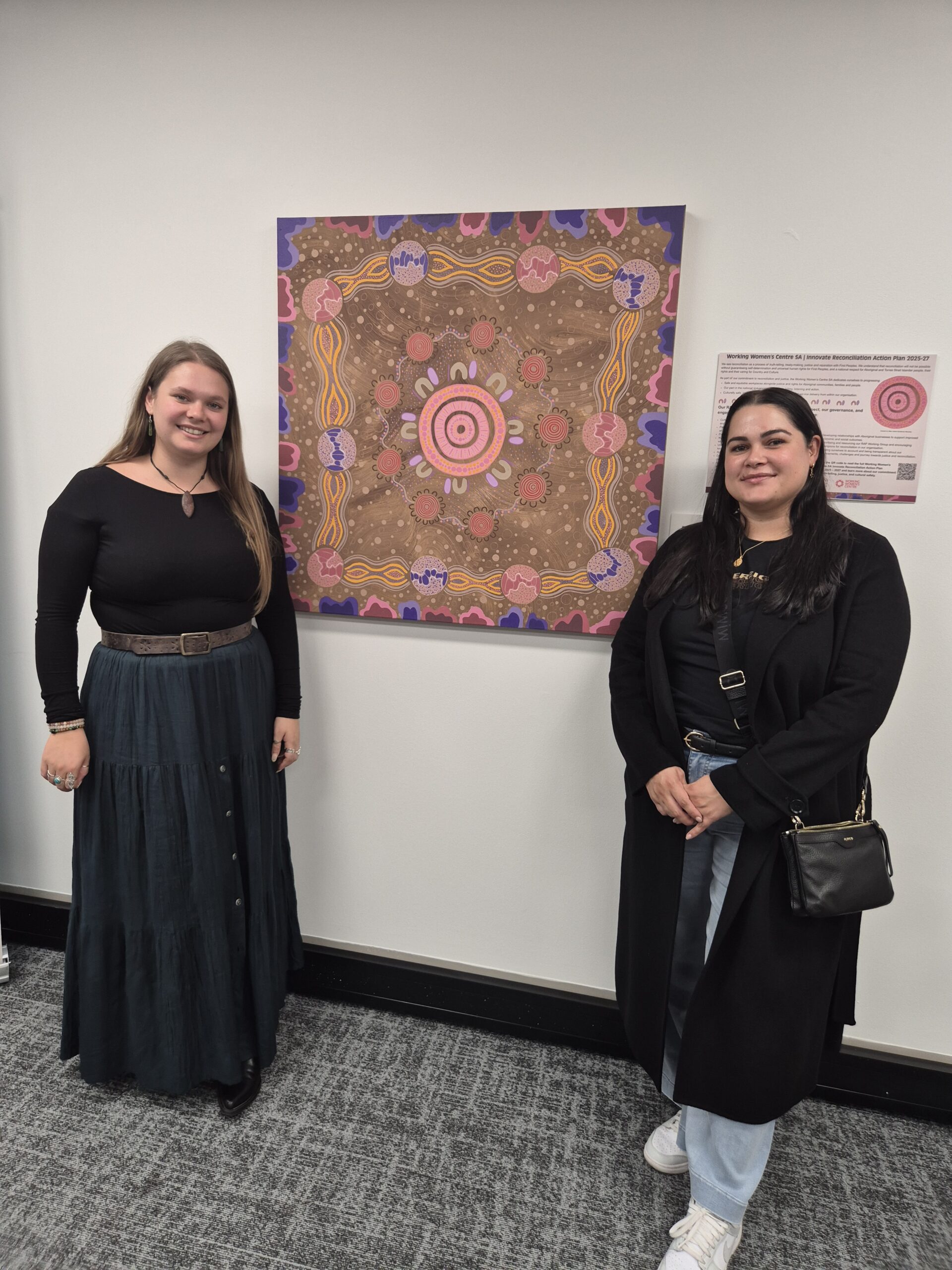
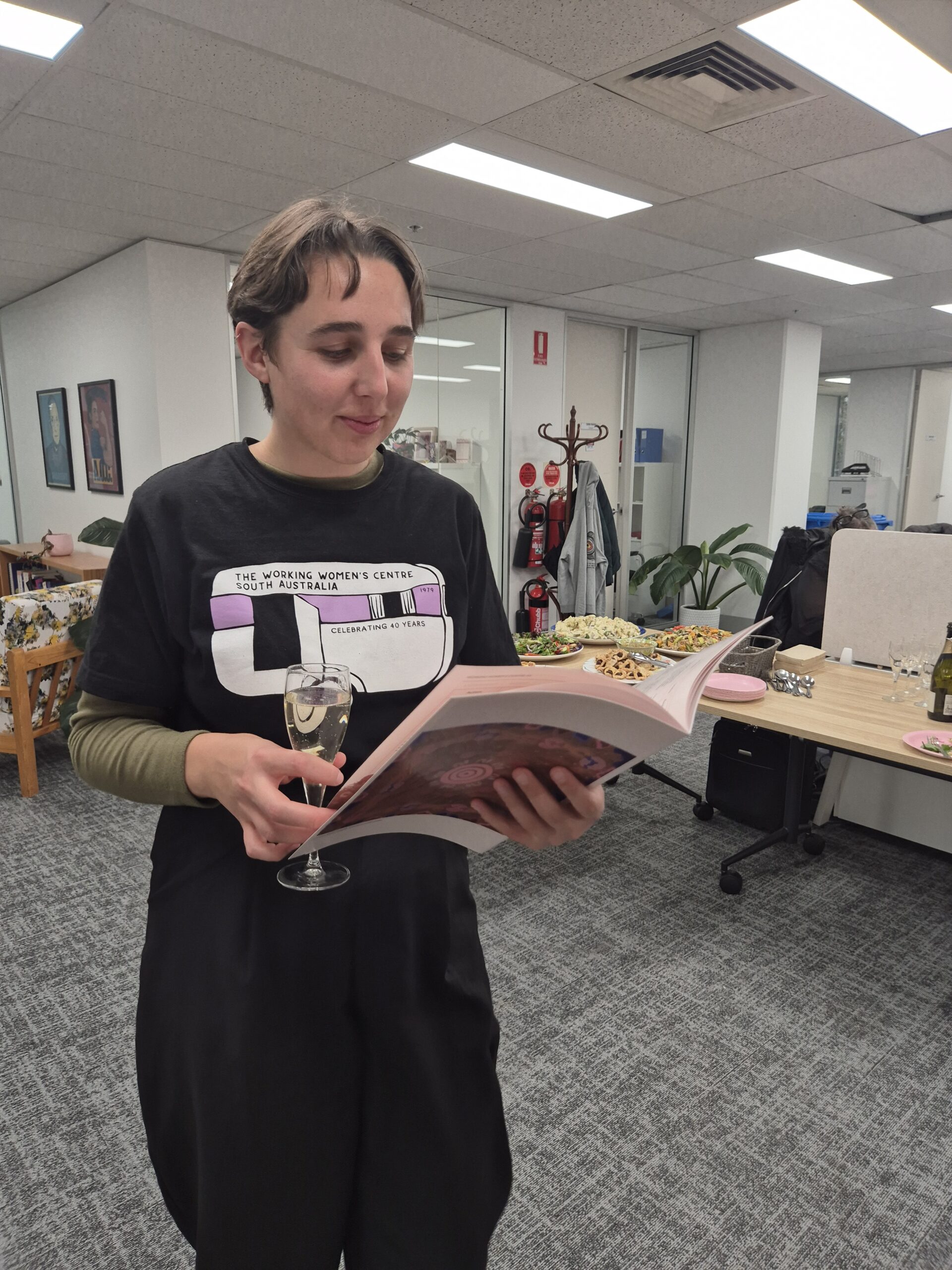
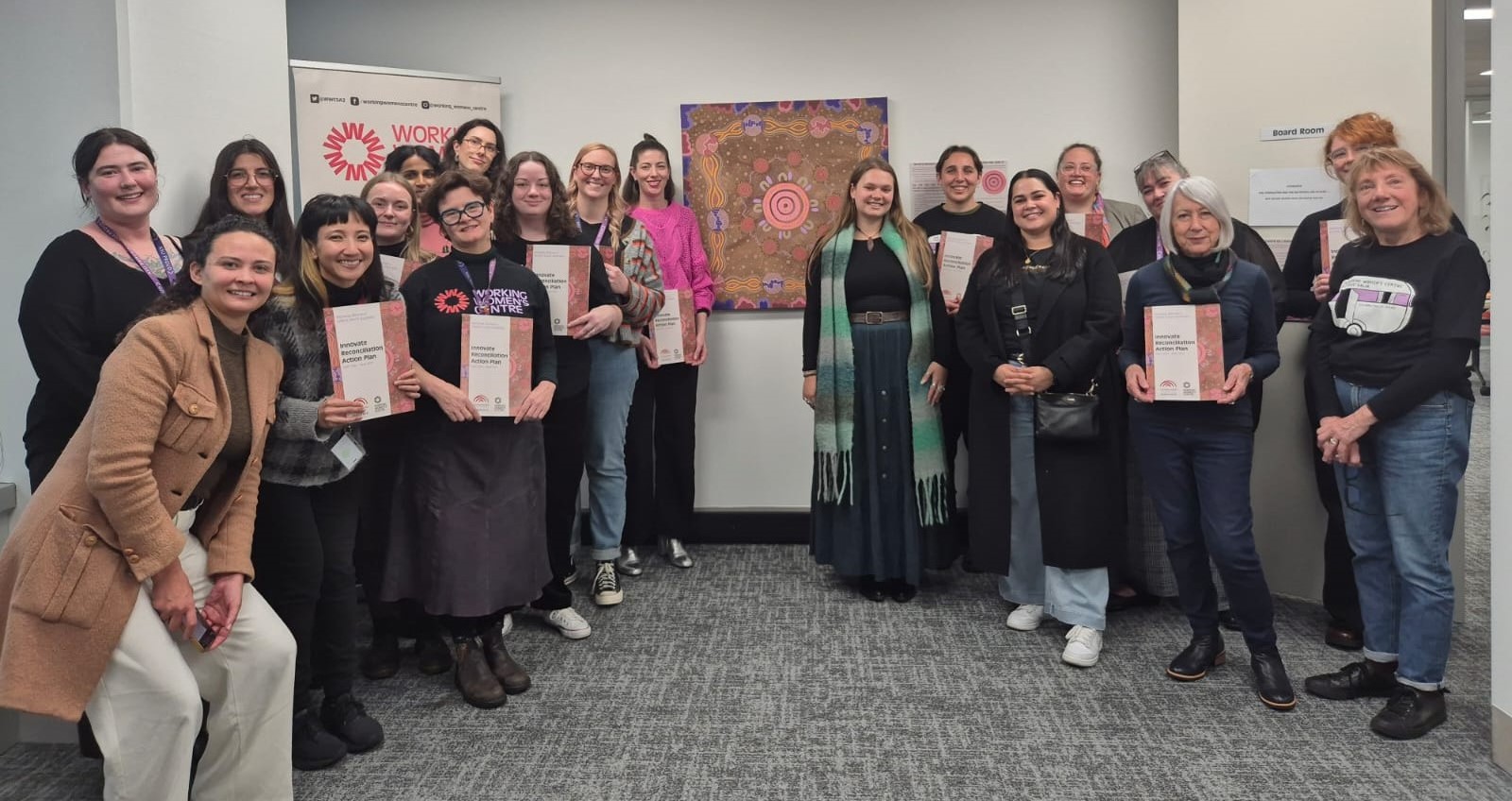
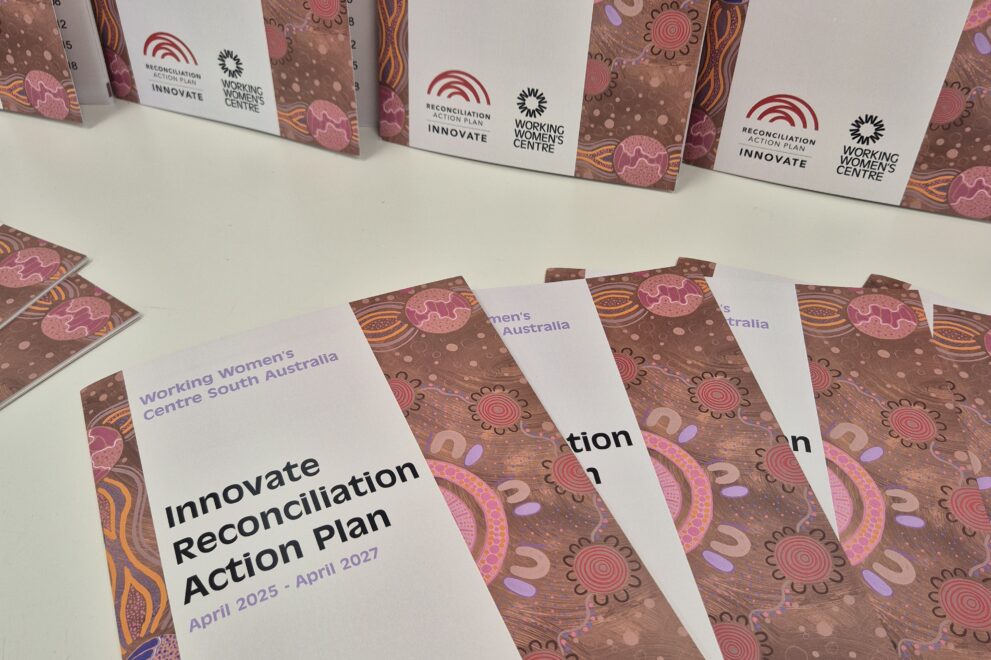
As part of this initiative, the AHRC has also developed a suite of resources to support workers, employers, and advocates in taking action.
👉 Explore the resources: https://lnkd.in/gHhBZxK6
👉 Read the full Speaking from Experience report here: https://loom.ly/SXRllfs
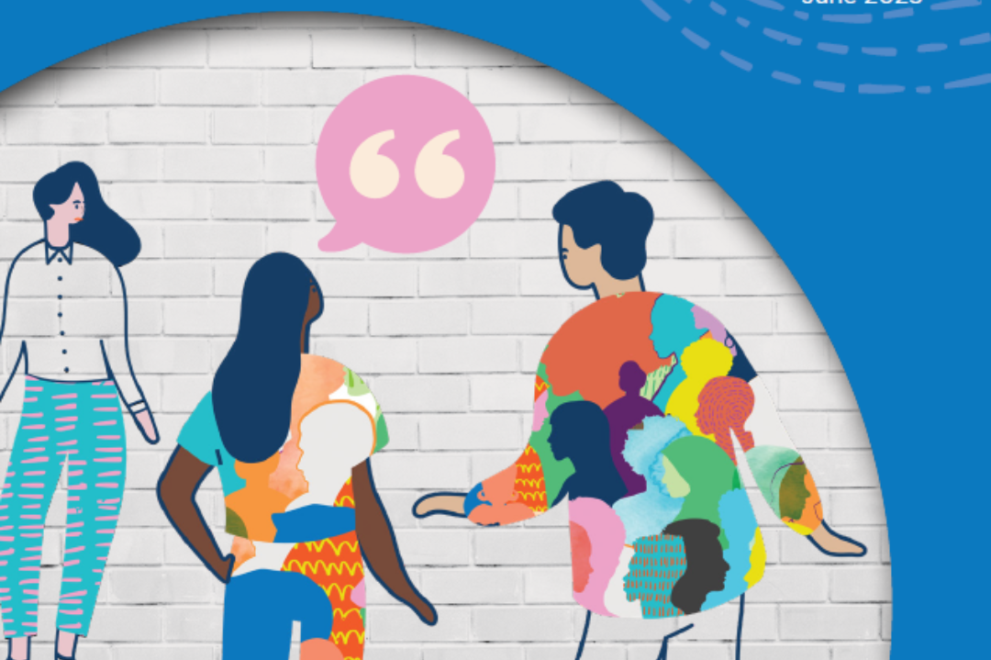
The Working Women’s Centre SA hit the road for four days, travelling to Port Augusta, Whyalla, and Port Pirie as part of our commitment to support vulnerable workers residing in regional South Australia about their rights at work.
We also provided free legal information to the community and connected with local organisations to strengthen referral pathways, build relationships, and better understand the needs of each region.
Our team engaged with hundreds of students, job seekers, teachers, and community members, sharing vital information about workplace rights, safe work environments, and how we support workers across regional South Australia.
We stopped in Port Augusta, where we were proud to be an exhibitor at the 2025 Career Roadshow hosted by UniHub Spencer Gulf. Education & Training Officer Maddie Diamond and Lawyer Dharani Rana were on hand to chat with students, career changers, and curious minds about their rights at work and the services we offer.
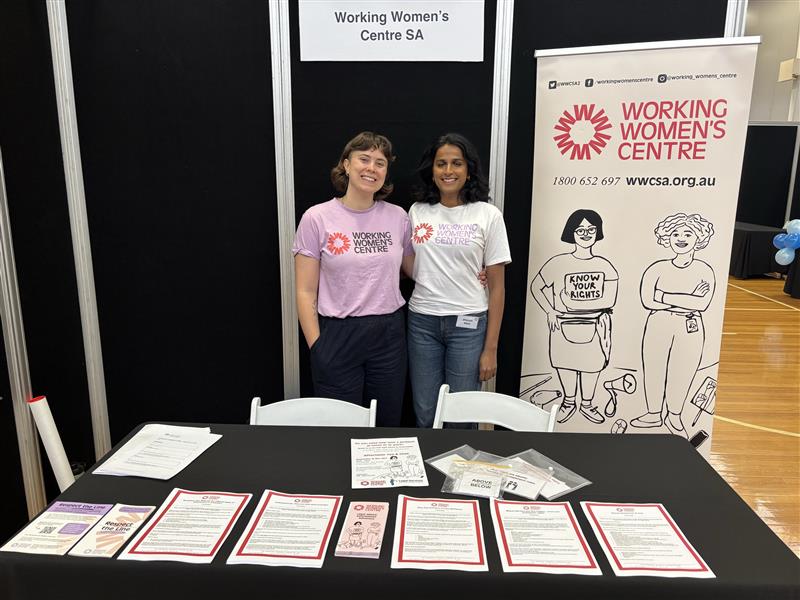
Our popular ‘Above the Line’ activity — helping participants identify workplace behaviours that are examples of sexual harassment — sparked meaningful conversations with young people and others who visited our stall.
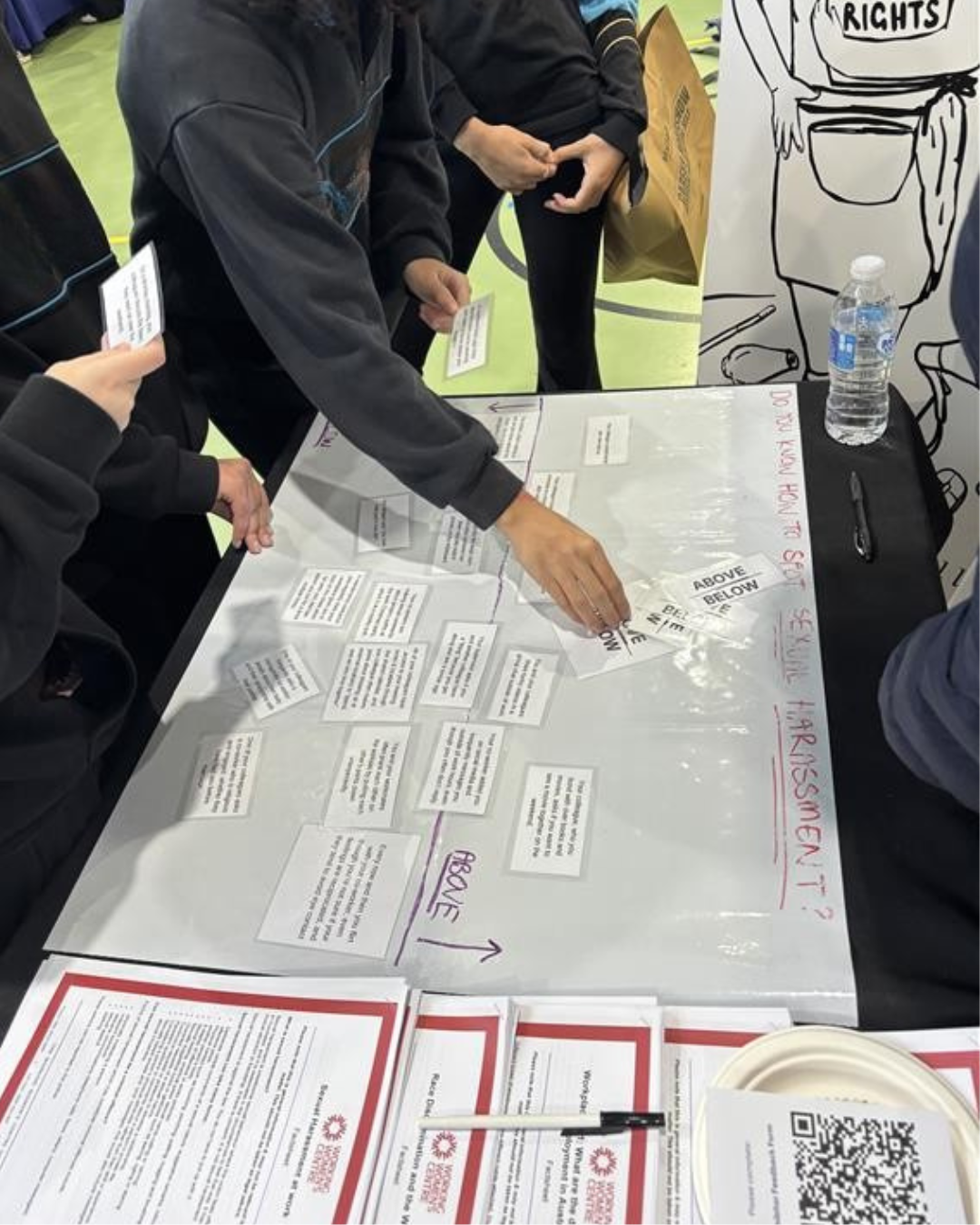
We teamed up with the Legal Services Commission for a community afternoon tea at TAFE SA Port Augusta. Locals were invited to drop in, grab a cuppa, and speak to our legal team about workplace rights, family law, domestic and family violence, child protection, and more.
We run these sessions to reduce barriers and provide clear and useful information through warm conversations.
The team also visited Whyalla, continuing the conversation at the local Career Roadshow, where we partnered with the Legal Services Commission. It was another fantastic day of engagement, where we spoke with students, workers, and community members about common workplace issues and how to seek help when things go wrong.
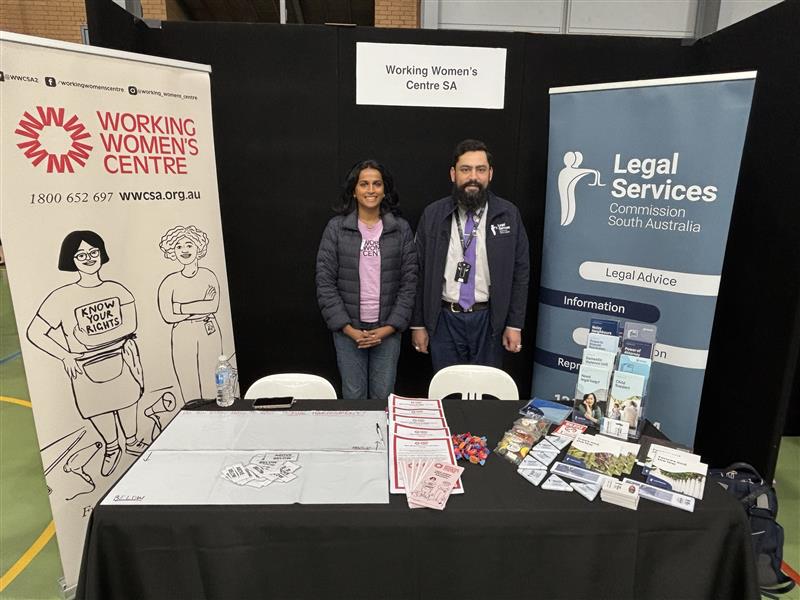
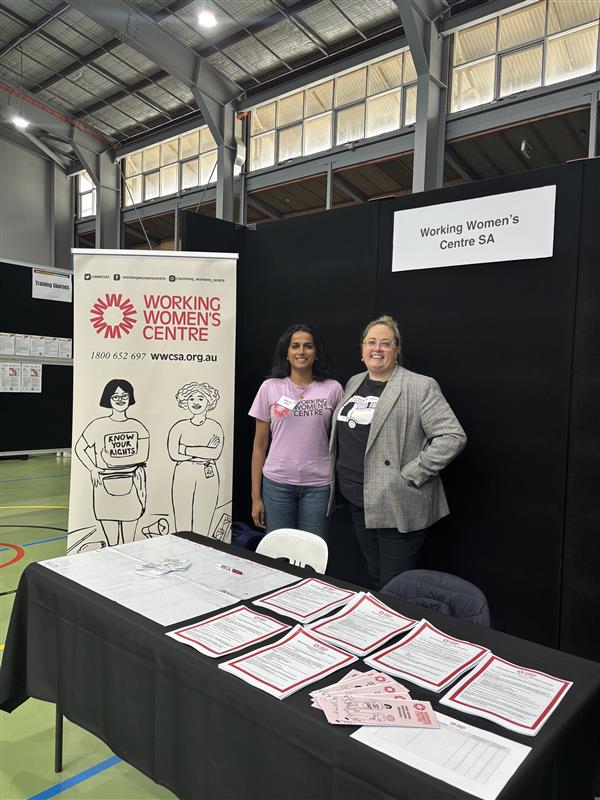
Our regional visit included meetings with the Port Augusta Council, Whyalla Council, The Haven Whyalla, Centacare, the Aboriginal Legal Rights Movement, the Australian Migrant Resource Centre, and the Whyalla Community Hub. In Port Pirie, our Director, Nikki Candy, and Principal Lawyer, Emma Johnson, connected with local services to share information about our programs and services.
On our way back to Adelaide, we wrapped up our trip with an interview on Umeewarra Radio, sharing how we support workers through free legal services and assist both workers and employers to create safer workplaces through our workplace training sessions.
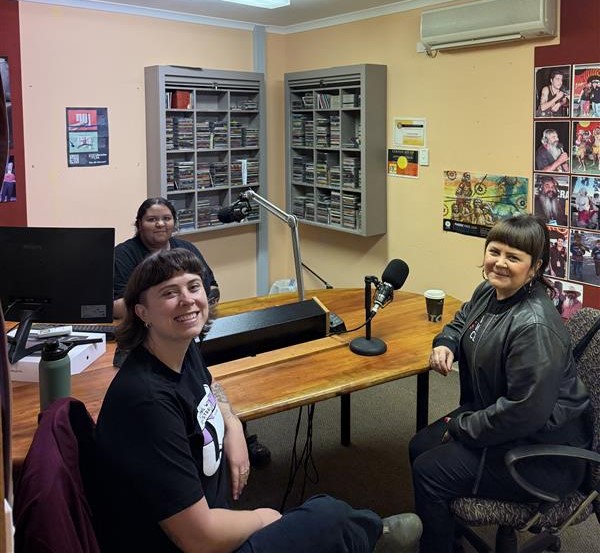
Why Regional Outreach Matters
Regional South Australians face unique challenges when it comes to accessing legal help and knowing their workplace rights. That’s why connecting directly with these communities is a key part of our work at the Working Women’s Centre SA.
If you or someone you know needs legal advice about work, we provide confidential, free legal support to eligible workers. Call (08) 8410 6499.
We also deliver Community Legal Education (CLE) —free presentations designed to assist students, workers, and community members better understand their workplace rights. To organise a CLE session or a speaker for your school, community group, or organisation, contact us at: reception@wwc.org.au
For employers we offer workplace education and training for small, medium, and large organisations across all industries, helping build respectful, safer workplaces. Get in touch with our Training and Education team to discuss your needs at training@wwc.org.au.
Want to stay updated on WWCSA news and where we’re heading next?
Sign up for our newsletter.
👋 We’re already looking forward to the next regional trip!
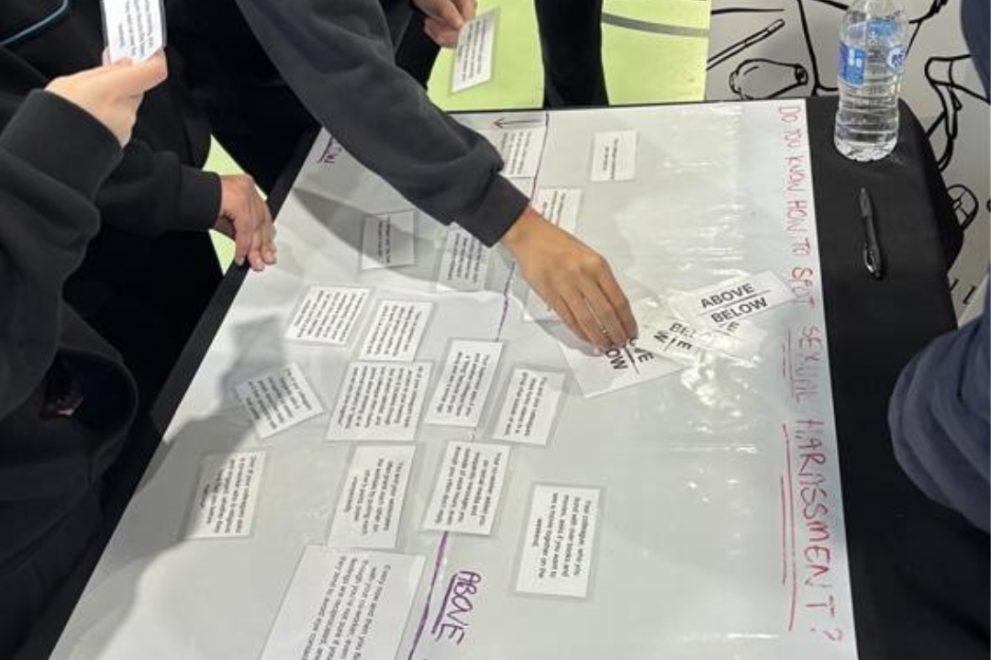
From 27 May to 3 June, Australians from all walks of life will mark National Reconciliation Week (NRW) — a time to learn about our shared history, reflect on our journey, and take meaningful action toward a fairer, more equitable future for Aboriginal and Torres Strait Islander peoples.
This year’s theme, “Bridging Now to Next,” invites us to reflect on where we’ve been, where we are, and where we need to go. It acknowledges the lessons of the past and challenges us to apply them in shaping a more respectful and united nation. It’s a call to every Australian to keep moving forward together.
Why these dates matter
NRW is always held from 27 May to 3 June to commemorate two key milestones in the reconciliation journey:
Together, these dates remind us of the power of collective action and the importance of truth, justice, and respect in shaping a better future.
About this year’s theme
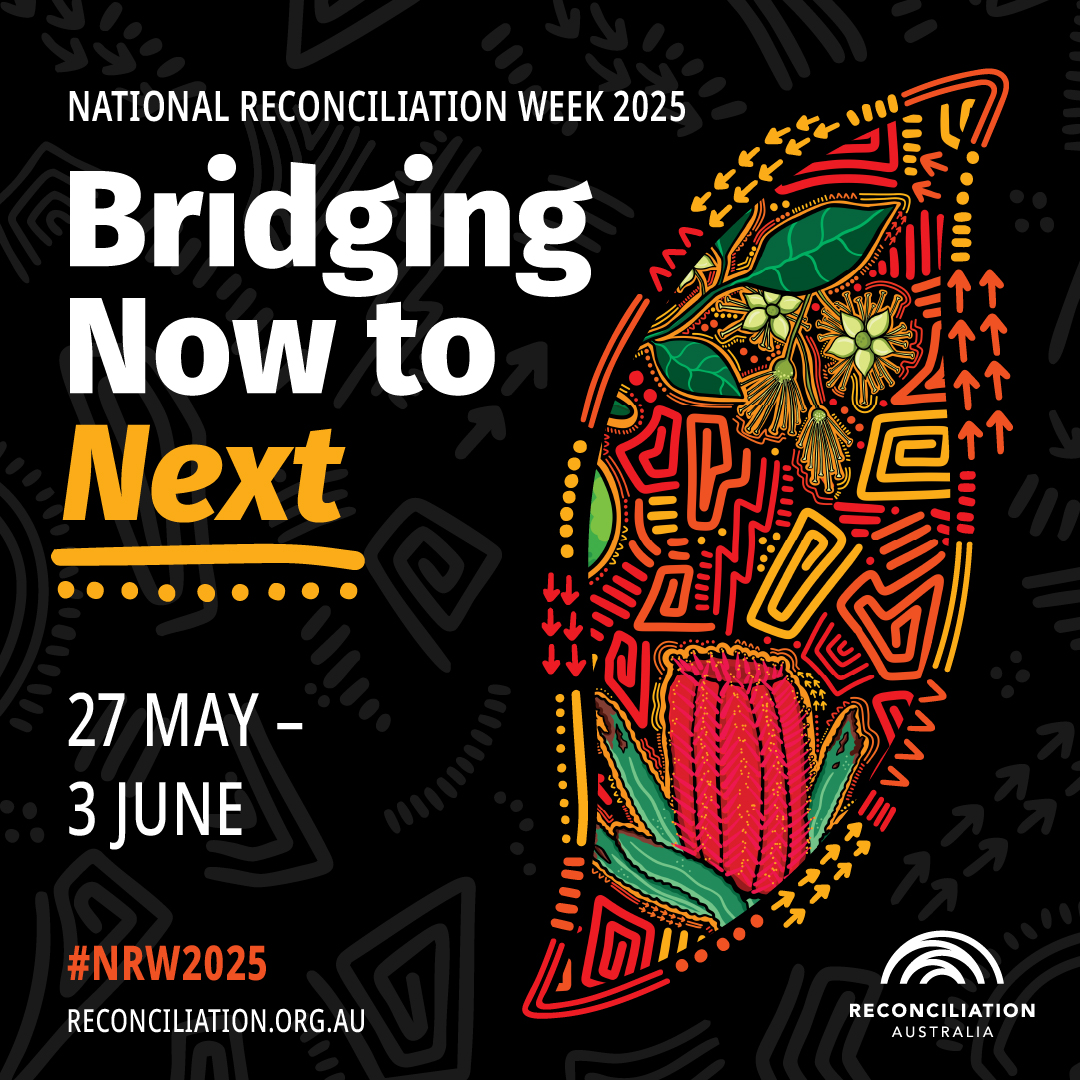
The 2025 theme — “Bridging Now to Next” — is brought to life by the artwork of proud Kalkadoon woman and digital artist Bree Buttenshaw. Her piece draws on the strength and resilience of native plants like Lemon Myrtle, Banksia and Kangaroo Paw — known for thriving after adversity — to symbolise regeneration, connection, and hope.
This theme is not just symbolic. It urges us to act: to honour the voices that came before us, to stand in solidarity with Aboriginal and Torres Strait Islander communities today, and to build a stronger, more just tomorrow.
How to get involved
National Reconciliation Week is for everyone. Whether you’re a school, workplace, or individual, there are many ways to participate:
Our commitment at the Working Women’s Centre SA
At the Working Women’s Centre SA, reconciliation is an essential part of our commitment to equity and justice. We honour the notion that Aboriginal matters require Aboriginal voices at the table and are pleased to inform that we are currently working in partnership with local Ngarrindjeri woman, Nicole Gollan of Nik&Co. Consultancy in the co-design of our inaugural Reconciliation Action Plan (RAP) — a framework that will guide our actions to build stronger relationships with Aboriginal and Torres Strait Islander peoples, ensure cultural safety in our workplace and services, and contribute meaningfully to reconciliation in South Australia.
We look forward to sharing our RAP with you soon, and continuing this important journey — together.
For more information about Reconciliation Week, visit reconciliation.org.au and stay tuned for updates on our Reconciliation Action Plan.
#NRW2025 #BridgingNowtoNext #ReconciliationWeek
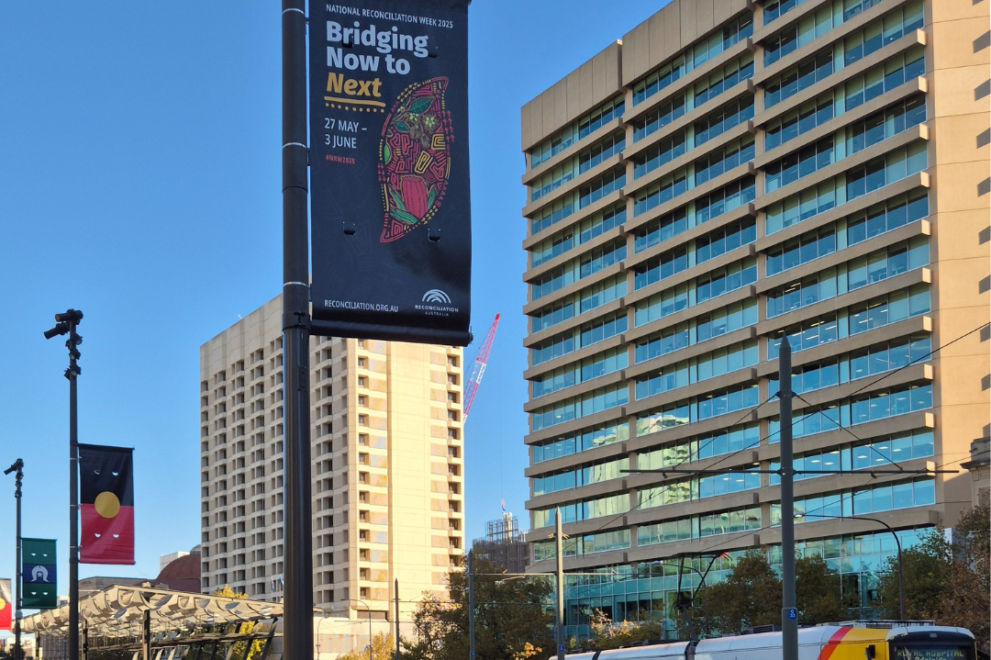
Abelita and Etelvina were in Australia for a two-week leadership and learning journey across Melbourne and Adelaide, as part of the Anna Stewart Memorial Project (ASMP) — a program that brings union women together to grow leadership, build solidarity, and strengthen the movement.
Their visit was made possible through our ongoing partnership with Union Aid Abroad – APHEDA, and it’s a reflection of the strong and deep-rooted bonds between Australian unions and our Timorese neighbours.
As part of their journey, Abelita and Etelvina took part in an intensive week of ASMP training with SA Unions. They explored the role of women in the union movement, connected with Australian labour history, and joined workshops on leadership and advocacy. They also spent time doing hands-on placements with local unions to see how worker advocacy plays out in real life.
When they visited us at WWCSA, we spent a full day learning from each other. Some of the highlights included:

Our connection with the Working Women’s Centre Timor-Leste goes way back. It all started in 2008 when Elisabeth Lino De Araujo — now WWCTL’s Country Manager — joined the ASMP and did her placement right here at WWCSA. That experience helped plant the seed for WWCTL, which today supports women workers across Timor-Leste, especially domestic workers who’ve long been excluded from formal labour protections.
It was an honour to spend time with Abelita and Etelvina. Their visit wasn’t just about learning — it was a beautiful expression of international solidarity. These connections strengthen the global movement of women pushing for fair, safe, and respectful workplaces.
To Mana Abelita and Mana Etelvina — Obrigada. Thank you for your courage, your stories, and your vision. This is just one chapter in a much bigger story of solidarity, sisterhood, and the ongoing fight for workers’ rights around the world.
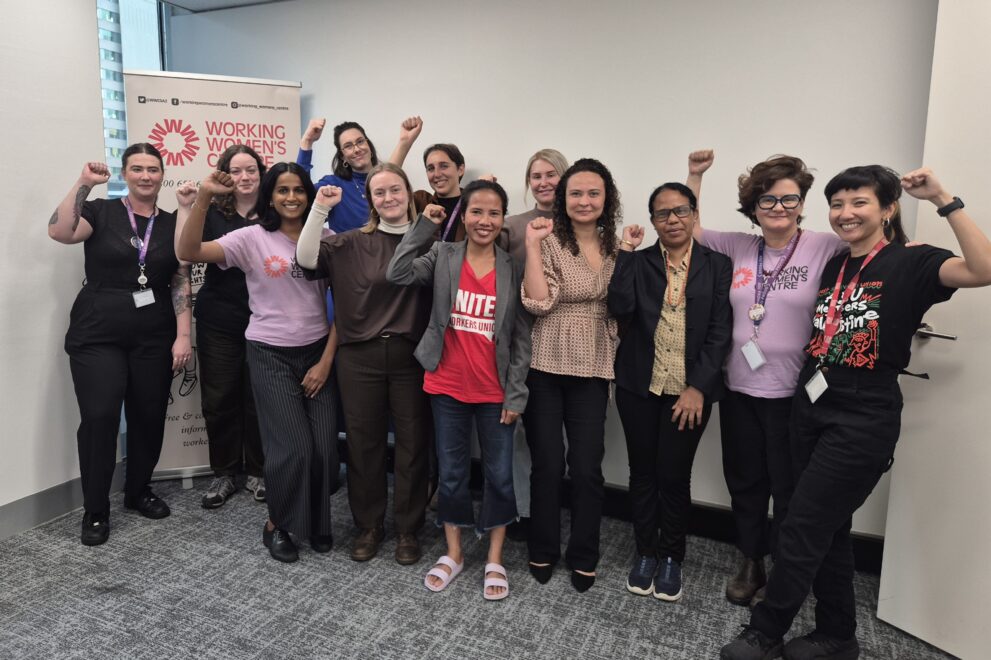
For many workers, particularly women, workplace sexual harassment is a deeply harmful psychosocial hazard. Its impacts are long-lasting, affecting mental health, job satisfaction, and overall wellbeing. But the impact goes beyond the harassment itself.
The widespread use of Non-Disclosure Agreements (NDAs) in workplace sexual harassment cases continues to undermine safety by silencing victim-survivors and protecting perpetrators. Often presented as a standard condition for resolving such claims, these legal contracts can ultimately cause more harm than good.
A Non-Disclosure Agreement (NDA) is a legal contract that requires someone to keep certain information confidential. In workplace sexual harassment cases, NDAs are often used to prevent victim-survivors from speaking about what happened to them—sometimes indefinitely.
While NDAs are presented as standard legal tools to protect privacy and finalise settlements, in practice, they are often misused, shielding employers and perpetrators while isolating victim-survivors. Many workers feel they have no real choice but to sign an NDA to resolve their complaint, secure a settlement, and protect their career.
One in three workers in Australia has experienced sexual harassment in the workplace in the last five years—41% of women, 26% of men, and 67% of non-binary people.[1] This is not a marginal issue. It is Australia’s most widespread workplace safety concern.
Sexual harassment is driven by outdated gender stereotypes and entrenched power imbalances. It happens across all sectors, to people of all ages and backgrounds, and it’s overwhelmingly perpetrated by men (77%). [2]
Workplace sexual harassment causes deep psychological harm. Victim-survivors often experience:[3]
When NDAs prevent people from speaking about their experiences, these harms are exacerbated—isolating workers, inhibiting accountability, and making it harder to heal.
At the Working Women’s Centre SA, we see first-hand the long-term impacts of workplace sexual harassment and NDAs on the careers and lives of workers.
Workplaces have a Positive Duty under the law to proactively prevent sexual harassment—not just respond after harm is done. The routine use of NDAs undermines efforts to create a safe, transparent workplaces.
We are calling on the South Australian Government to restrict and regulate the use of NDAs in workplace sexual harassment matters. NDAs should never be the default.
They should only be used when requested by the victim-survivor, without coercion, and with access to independent legal advice.
NDA reform would:
The Working Women’s Centre SA is campaigning to end the misuse of NDAs and ensure that workers can access justice, healing and the freedom to tell their stories.
[1] [2][3]Source: Time for respect: Fifth national survey on sexual harassment in Australian workplaces, Australian Human Rights Commission, 2022.

The gender pay gap remains an obstacle to economic equality in South Australia. Women continue to earn less than men, affecting their financial security, career opportunities, and long-term well-being. Closing the gender pay gap will improve the lives of women across South Australia.
On average, for every dollar men earn in South Australia, women earn just over 90 cents. This means women earn about $190 less per week than men, adding up to $9,412 less per year. The report shows that South Australia’s gender pay gap is currently 9.8%. While SA has the third smallest pay gap in Australia, it has grown by 1.8 percentage points since the Taskforce started in 2022.
The Taskforce is made of representatives from government, business, and gender equality experts. Sarah Andrews MP, Chair of the Taskforce, said their work focused on understanding why the gender pay gap exists and identifying solutions to close it.
Over the past two years, we have done a lot of research and put together a report that explains the complex reasons behind South Australia’s gender pay gap, Andrews said.
The Taskforce focused on:
The report found three main reasons why women in South Australia earn less than men:
Abbey Kendall, a Taskforce member and CEO of the Working Women’s Centre Australia, explained the impact:
The gender pay gap negatively affects women’s lives and the economy. Women in South Australia earn less, save less for retirement, and are less likely to be in leadership roles. Over time, this leads to more financial stress, housing instability, and poverty for women as they get older.— Abbey Kendall, CEO of the Working Women’s Centre Australia
The report recommends three key areas for action:
1. Supporting Employers in South Australia
2.Improving Data and Research on Gender Inequality
3.Strengthening the Role of the Public Sector
Nikki Candy, Director of the Working Women’s Centre SA, emphasised the importance of the report:
This report confirms what we see every day—women in South Australia continue to face gender pay discrimination. To close the gap, we need action at every level.
With almost two-thirds of the workforce in small and medium-sized businesses, there is a real opportunity for change. At the Working Women’s Centre, we’ll continue to support employers by providing training and practical tools to address their gender pay gaps.
We will continue working towards a future where women receive equal pay and equal opportunities. — Nikki Candy, Director of the Working Women’s Centre SA
Research suggests that closing the gender pay gap could add $128 billion to the Australian economy. At a time when South Australia is facing critical skills shortages, failing to address this gap means missing a significant opportunity to drive economic growth.
The gender pay gap is not just a matter of fairness—it impacts the entire community and has wide-ranging economic and social consequences. Closing the gap would improve women’s economic security and independence while also reducing financial abuse and long-term poverty among women.
Our state has always been a world leader in gender equality and I want us to continue to lead the way in our shared efforts to close the gender pay gap, said Katrine Hildyard MP, Minister for Women and the Prevention of Domestic, Family and Sexual Violence.
For more information on the Gender Pay Gap Taskforce final report, visit the Office for Women South Australia or contact the Working Women’s Centre for workplace legal advice and training and resources on gender equality in the workplace.
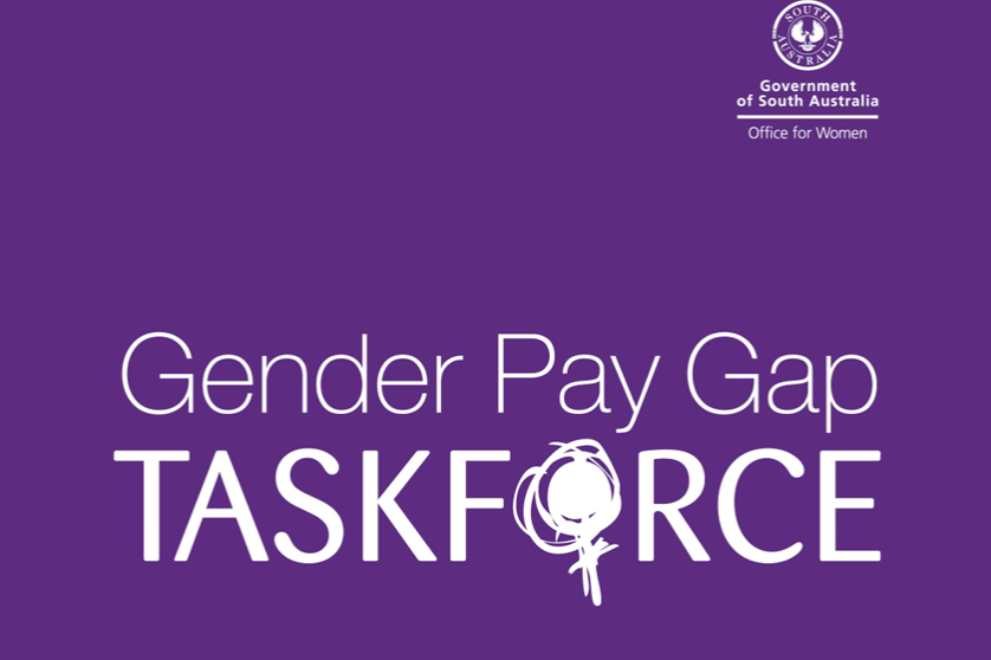
Join us to march together on International Women’s Day for safety, equality and respect, in our workplaces, communities and families.
IWD is a day for working women and all who fight for justice and equality. Come and say hi to the Working Women’s Centre crew at the march!
On Saturday 8th March we’ll ‘March Forward’ starting at Tarntanyangga (Victoria Square – North End) at 10:30am.
The Welcome to Country will be by Aunty Elaine Magias, a proud Kaurna & Narungga woman and inspiring educator. We’ll then hear from the following speakers:
As we go marching, marching … we’ll march together north to the mall and then to Mukata (Hindmarsh Square) and close the march.
Come and say hello to the Working Women’s Centre crew (look for our t-shirts). We’ve got some shiny new badges to distribute with the message ‘Our silence is not for sale’.
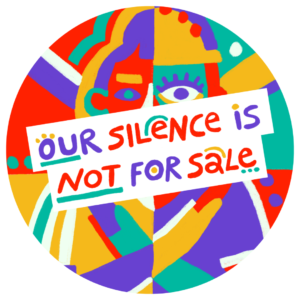
We’re calling for law reform to end the misuse of Non-Disclosure Agreements (NDAs), so people can tell their story, on their terms. We can make workplaces safer by making sure workers aren’t forced to sign NDAs when they make a complaint about sexual harassment they’ve experienced.
The ‘Our silence is not for sale’ artwork is by artist Nicky Minus. You can check out her amazing work at the Gallery 3 Workers Art Collective.
Find details and accessibility information about the IWD march here. We can’t wait to see you there!
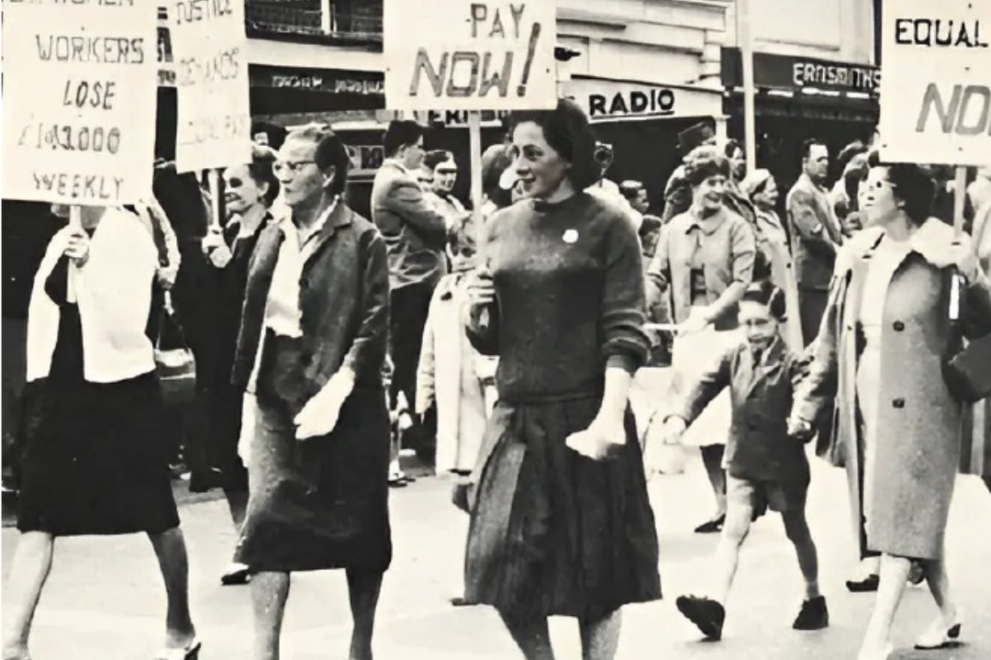
Workplaces should be safe places to work, but one in three Australian workers has experienced workplace sexual harassment in the past five years—a stark reality highlighted by the Fifth National Survey on Sexual Harassment in Australian Workplaces (AHRC, 2022).
This isn’t just a statistic; it’s a call to action for businesses to comply with Positive Duty requirements, improve their workplace culture, and offer a safer environment for their employees.
The Working Women’s Centre SA offers a tailored workshop designed to equip workers and businesses with the resources they need to meet legal obligations while fostering a respectful and inclusive workplace culture. The Respect the Line workshop provides the tools and knowledge needed to drive meaningful change.
Taking Action
The vast majority of people want to do the right thing—they just need the right knowledge and tools. Businesses have a responsibility to ensure their workplaces are safe spaces, free from harassment and discrimination.
Change is needed in all industries and every workplace. Both leaders and workers must play an active role in driving this change. Our Respect the Line workshop helps challenge outdated gender stereotypes and provides staff with the tools they need to prevent and respond to workplace sexual harassment.
Key Benefits of the ‘Respect the Line’ Workshop:
✅ Understanding Gendered Drivers: The workshop explores the root causes of sexual harassment, helping businesses create equitable and fair workplaces.
✅ Practical Strategies for Prevention: Participants will learn actionable techniques to effectively address and prevent workplace sexual harassment, ensuring a safer environment for all.
✅ Legal Compliance: With a focus on the latest Positive Duty legal requirements, organisations will gain the knowledge necessary to maintain compliance and protect employees.
The training is designed to meet the needs of diverse audiences, including small-to-medium businesses and male-dominated industries, ensuring that the content is relevant and impactful across various sectors.
Why Choose ‘Respect the Line’ workshop?
In addition to meeting legal obligations, the workshop fosters a positive workplace culture that contributes to employee well-being and organisational success. By participating in this training, businesses can proactively address issues before they escalate, reduce turnover, and improve overall workplace morale. We go beyond awareness-raising and tackle structural factors and changing attitudes.
Free Workshop Opportunities
To make this training more accessible, free workshop are available for eligible organisations. Priority is given to small-to-medium businesses in high-risk industries who demonstrate commitment to improving workplace culture.
Reach out to our Education & Training team to learn more.
Enquire now or contact our Education & Training officers:
📞 (08) 8410 6499
📧 training@wwc.org.au
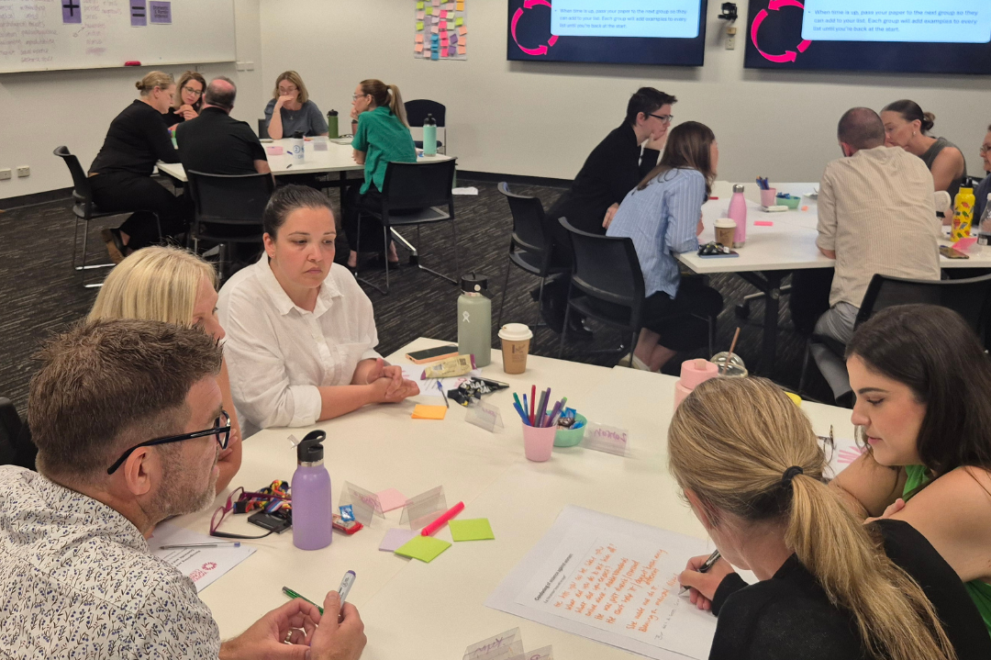
Applications are OPEN for law students in their final or penultimate year of law school to work with our Client Services Coordinator and Legal Team.
Why Volunteer with Us?
The program is designed to train law student volunteers to undertake client intake and assist the legal team with appropriate legal tasks. We specialise in employment law issues, including discrimination and sexual harassment, and are committed to feminism, trade unionism, and workers’ rights.
By volunteering one day per week during the university semester, you will:
✔ Receive training in employment law and legal procedures.
✔ Gain hands-on experience in client intake and case management.
✔ Learn to draft legal letters and tribunal forms.
✔ Participate in professional development opportunities.
✔ Obtain a reference for future job applications.
What Will You Work On?
As a volunteer, you will:
✔ Assist with client intake—handling enquiries, booking appointments, and managing diaries.
✔ Monitor the client services inbox and coordinate document forwarding.
✔ Draft legal documents, including client correspondence and tribunal submissions.
✔ Conduct legal research, including case law and legislation analysis.
✔ Observe client interviews, advice sessions, and conciliation conferences.
We are seeking passionate and dedicated law students who:
✔ Can commit to volunteering one day per week for the university semester.
✔ Have strong oral and written communication skills.
✔ Are studying or have an interest in feminism and employment law.
✔ Have experience in customer service.
✔ Are committed to feminism and trade unionism.
✔ Can communicate confidently and empathetically with clients from diverse backgrounds, including those who have experienced distress or trauma.
What Our Past Volunteers Say
When asked about their experience volunteering at the Centre, here’s what our past volunteers had to say:
I was inspired to volunteer for the Working Women’s Centre because of my own negative experiences. Since then, I have become passionate about workers’ rights, advocating for equality, and creating a safe space for vulnerable groups in the workplace. Volunteering in this field has allowed me to align with my social justice values and positively impact the community by helping provide legal support to those who may not otherwise afford it.”
— Gabriella Candido, Law Student Volunteer, Semester 2, 2023
Reflecting on my time volunteering at the legal centre, the genuine warmth from everyone stands out. Everyone is so friendly, and it makes all the difference. I’ve also gained invaluable insight from sitting in on client meetings and attending mediations. Witnessing firsthand the legal challenges many women face has been an eye-opener.”
— Hayley Tan, Law Student Volunteer, Semester 2, 2023
2025 Law Student Volunteer Program
The deadline to submit your application is 20 FEBRUARY 2025.
We strongly encourage applications from First Nations peoples, people of colour, LGBTQIA+ individuals, disabled applicants, and survivors of gendered violence. We are committed to accessibility—please contact us to discuss any workplace adjustments you may require.

We are pleased to announce the commencement of our Law Student Volunteer Program for Semester 1, 2024, with the successful recruitment of two new volunteers, Lejla Cacvic and Suzy Jeong.
Both Lejla and Suzy make a wonderful addition to the centre, and we thank them for generously offering to volunteer their time.
Our volunteer program is overseen by our Client Services Coordinator, Sarah Devenport, and Lawyer, Angela Scarfo, who are both constant points of contact for our students, providing training and supervision in an ongoing capacity to enhance and foster growth in skills and confidence.
The program is designed to train law student volunteers to undertake client intake and assist the legal team with appropriate legal tasks.
Our program ensures that both Suzy and Lejla will experience a busy legal practice and be exposed to:
The law student volunteer program runs for the duration of the university semester and we expect the new intake of volunteers to commence shortly before semester two 2024.
This program is funded by the South Australian Attorney General’s Department.
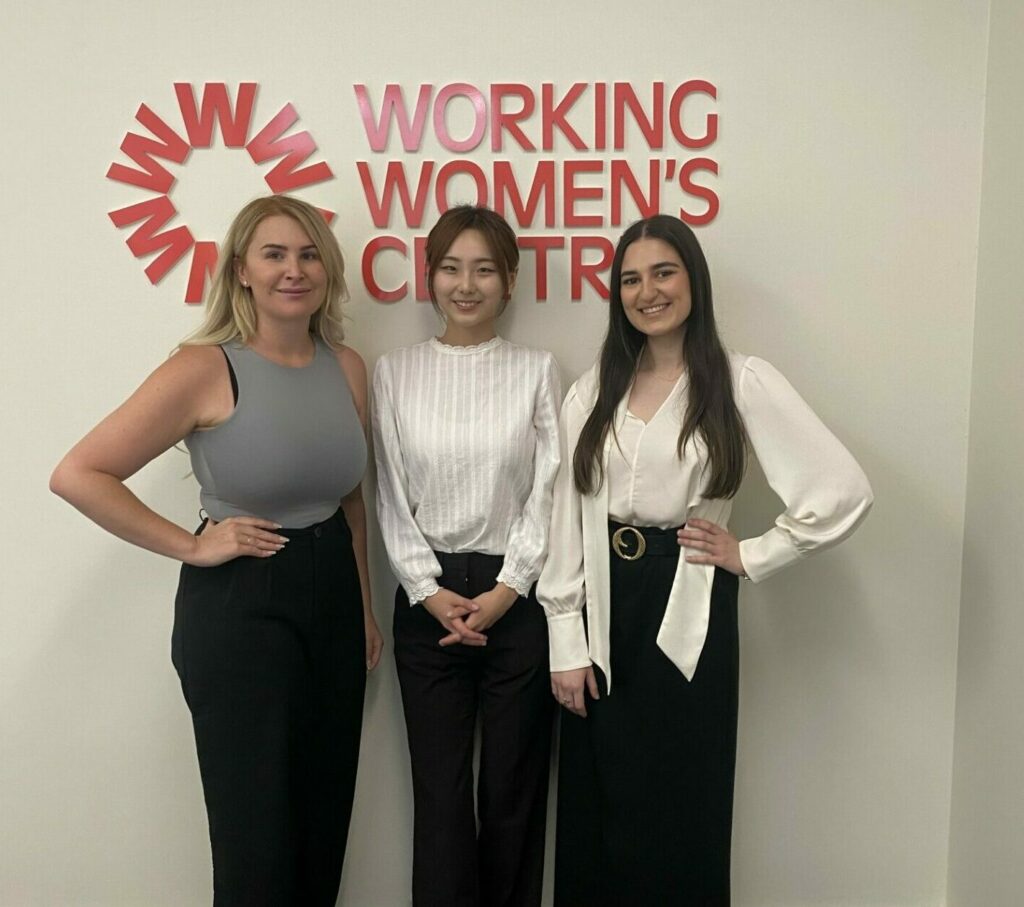
(From left to right) Client Services Coordinator Sarah Devenport; new volunteers Suzy Jeong and Lejla Cacvic.
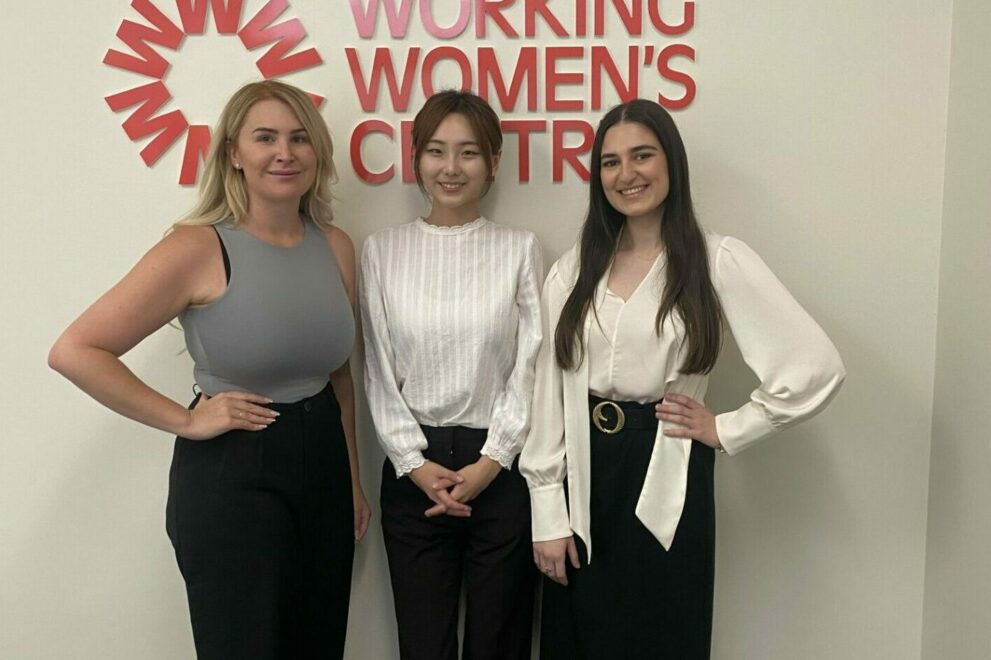
On 1 December 2023 the Working Women’s Centre SA hosted an event at Tadouni College in Port Adelaide on domestic servitude with keynote speakers Associate Professor Natalie Harkin and Elisabeth Lino de Araujo.
The event was attended by Kaurna, Ngarrindjeri, and Narungga Elders and activists, government officials, representatives of Aboriginal health, academics, union officials, APHEDA members, the Hon. Mira El Dannawi MLC, the Hon Steph Key, the Hon. Tammy Franks MCL and the Commissioner for Equal Opportunity, Jodeen Carney.
We received apologies from the Hon. Kyam Maher, Attorney General, the first Aboriginal Attorney-General in South Australia, as well as Minister for Aboriginal Affairs and Minister for Industrial Relations and the Public Sector. We also received apologies from the Hon. Katrine Hildyard MP, Minister for Women and the Hon. Natalie Cook MP, Minister for Human Services.
Associate Professor Natalie Harkin and Elisabeth Lino de Araujo shared their expertise, research and poetry on domestic servitude and advocacy of marginalised women. This event was an excellent demonstration of solidarity between Aboriginal and Timor Leste women as it presented the similarities between historical domestic servitude within our State, which makes up an under spoken element of Australia’s history, and domestic servitude that occurring in other parts of the world today, such as in Timor-Leste.
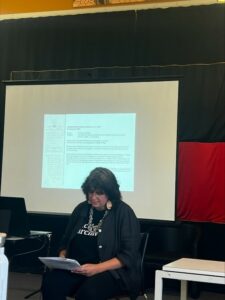
Associate Professor Natalie Harkin
Elisabeth Lino de Araujo is the founder of the Working Women’s Centre Timor-Leste (WWCTL) in Dili, Timor-Leste. From 2007 Elisabeth has worked as the Country Manager of Union Aid Abroad – APHEDA Timor Leste. Elizabeth presented on the incredible work that the WWCTL does, with a focus on advocacy for domestic and vulnerable female workers both in reaction to exploitation but in prevention. The Labour Code of Timor Leste was ratified by the Timorese Government in 2010, and the WWCTL has an outreach training workshop where they educate women on their rights at work in accordance with this legislation. We also heard Elisabeth present on another example of the fantastic advocacy of the WWCTL, on the proposed Special Law for Domestic Workers Bill in Timor Leste, which was drafted in 2017, and is awaiting promulgation. It was inspiring to hear about the WWCTL’s steadfast contribution to the formation of this Bill.
Associate Professor Natalie Harkin is a Narungga poet and Research Fellow at Flinders University living on Kaurna Yerta, South Australia. She engages archival-poetic methods to document community Memory Stories and is a member of SA’s inaugural State Records/State Library Aboriginal Reference Group. Her research centres on Aboriginal women’s domestic service and labour histories, and Indigenous Living-Legacy / Memory Story archiving innovations for our time.
Associate Professor Harkin presented on her research on historical domestic servitude of Aboriginal women and resulting stolen wages, of which the government in South Australia is yet to address. Further, she discussed the barriers in place for Aboriginal people to access their records through the State Archive today. An important underpinning theme of her work is the importance of the decolonisation of our state archives.
Leadlight artist and Narungga woman Sharene Vandenbroak kindly allowed the Working Women’s Centre SA to display her stain glass artwork at this event. Her artwork entitled ‘See Her Shining in the Sun’ was featured in the larger exhibition ‘APRON-SORROW / SOVEREIGN -TEA’ in 2021. Sharene’s set of gorgeous handmade stain glass windows depicting her strong female family members performing domestic labour received much praise and enhanced the story telling atmosphere of this event.
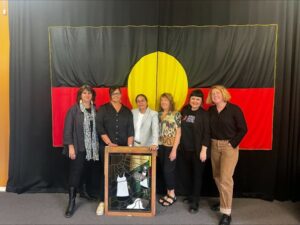
(Left to right) Associate Professor Natalie Harkin, Sharene Vandenbroak, Elisabeth Lino de Araujo, Anne-Marie Hayes, Nikki Candy, Abbey Kendall
Stolen Wages Work
The Working Women’s Centre SA organised this event as a result of meeting with multiple Aboriginal women and hearing their stories of work from the late 1950’s to late 1960’s. In acknowledgement of South Australia’s under recognised history of exploitation of Aboriginal workers, the WWC has been assisting several Aboriginal women to gain access to their records held in archives by the state government.
The racially motivated policies that existed in South Australia up until the 1970’s facilitated control and exploitation of Aboriginal workers. Resultingly, it was common for Aboriginal workers to not be paid, or to be paid small, intermittent amounts of money for the work they performed. The types of work that were common for Aboriginal workers to perform historically were domestic and pastoral work. The WWC is funded to provide legal advice to women and vulnerable workers, and in line with our funding, domestic servitude is feminised work. In a recent submission from the WWC to the state government on the proposal for South Australia to form a Human Rights Act, the WWC submitted to the inquiry that Aboriginal people should have the right to have timely access to records that relate to them. A copy of the WWC’s submission can be found here.
The WWC has been working with Associate Professor Natalie Harkin in advocating for archive accessibility and assisting Aboriginal women to request their own government records relating to their historical employment. This is often a lengthy process with multiple bureaucratic obstacles, which creates further barriers for Aboriginal people to access their own records relating to themselves and their families.
The WWC strongly supports and endorses the decolonisation of state records. Ensuring that Aboriginal people have timely and effortless access to their own records is an essential and crucial step towards truth telling and reconciliation of South Australia’s history of exploiting Aboriginal workers.
Other states and territories in Australia such as QLD, NT, NSW, WA and the NT have addressed historical stolen wages that occurred within their jurisdictions. South Australia is yet to address this issue.
The Working Women’s Centre SA would like to thank all who attended this highly successful event, and to further send a special thanks to both Elizabeth and Associate Professor Natalie Harkin for sharing their expertise. We look forward to continuing this collaboration and advocacy on these important issues with both Elizabeth and Associate Professor Natalie in the future.
The 16 June marks International Day of the Domestic Worker. You can read about Domestic Workers, here. We look forward to platforming domestic workers and both their historic and current rights in the coming year.
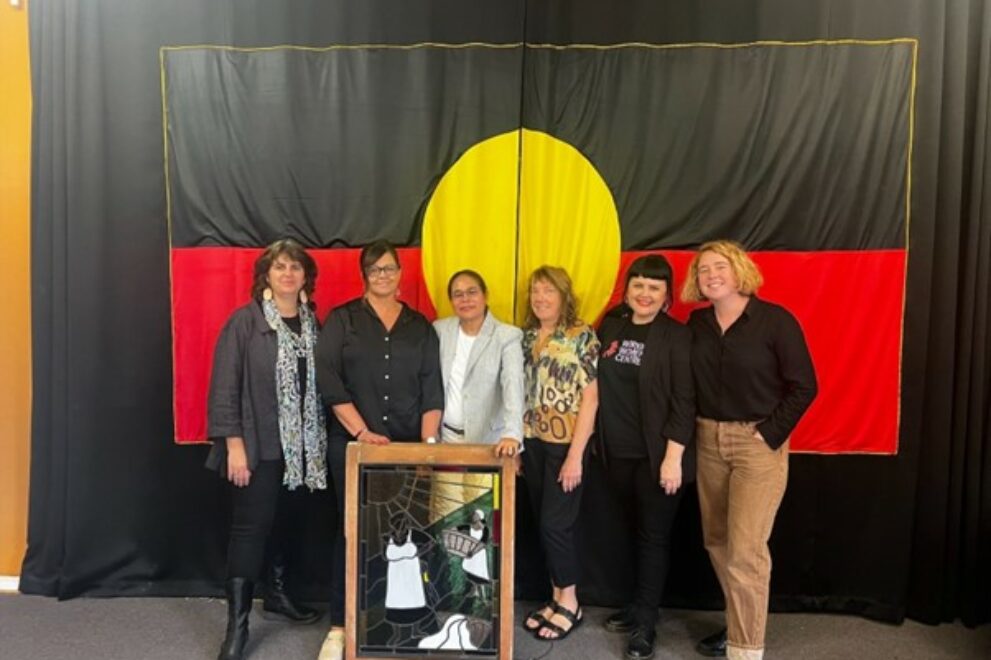
In a show of support and solidarity, the Working Women’s Centre attended the Bread and Roses / Bret Mo Roses album launch, spotlighting the courageous battle of a group of 12 migrant women, members of the United Workers Union, who are fighting back after surviving sexual violence in the glasshouses of Perfection Fresh company.
These women, known as the Perfection 12, have bravely taken their fight to the Federal Court of Australia, seeking accountability and systemic change at Perfection Fresh, a major supplier to Coles and Woolworths, for failing to provide a safe workplace for its employees, particularly women who endure sexual harassment and assault within its glasshouses.
The Bread and Roses album, featuring the voices and stories of the 12 migrant women union members, marks a significant moment in the ongoing struggle, particularly highlighting the sacrifices that seasonal workers make for their families and their isolation from their communities for years, as well as their pursuit for justice and safety in the workplace. The title track, Bread and Roses (Bret Mo Roses) is an old union song that has been adapted by the women to reflect their own fight for respect.
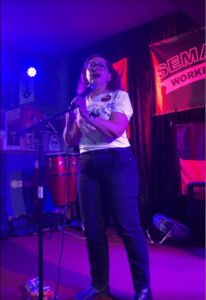
During her speech at the Semaphore Workers Club event, Caterina Cinanni, executive director of the United Workers Union, emphasised the urgency of their fight for change. “The Perfection 12 are brave women fighting for justice, respect, and safety not just for themselves, but for every single woman working in that glasshouse. Perfection Fresh is the wealthiest and largest tomato glasshouse corporation in Australia.”
Abbey Kendall, director of Working Women’s Centre, underscored the importance of safe workplaces for all workers “Seasonal work must be safe, regardless of their background, identity, or job type. That is the benchmark of Australian workplace laws,” she added.
As the Perfection 12 continue their legal battle, supporters can amplify their message by spreading awareness and advocating for accountability from companies like Perfection Fresh. The Bread and Roses album serves as a testament to their resilience and determination, inspiring solidarity, and action among all who seek justice in the workplace.
For more information on how to support the Perfection 12 and their campaign, visit Bread and Roses – Full Album – Rotten Perfection

Abbey Kendall, the Director of the Working Women’s Centre SA, and Caitlin Feehan, lawyer with the Centre, travelled to Canberra on Wednesday (31) to represent the organisation at the Senate Inquiry held at Parliament House. Their purpose was to provide evidence concerning the Australian Human Rights Commission Amendment (Costs Protection) Bill 2023.
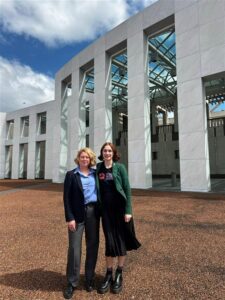
The passage of this bill would eliminate the financial risk for women who have experienced sexual harassment and/or discrimination of having to pay the legal costs of their employer when pursuing their claims in the Federal Court. The current financial risk with taking these types of matters to Court is a known deterrent for women when considering whether to pursue their matters past unsuccessful conciliation. By this Bill being passed, it would provide certainty for women to pursue their matters without risking their long-term economic security.
Great work to all the organisations that attended the Senate Inquiry yesterday in support of this important proposed law reform!
![]()
